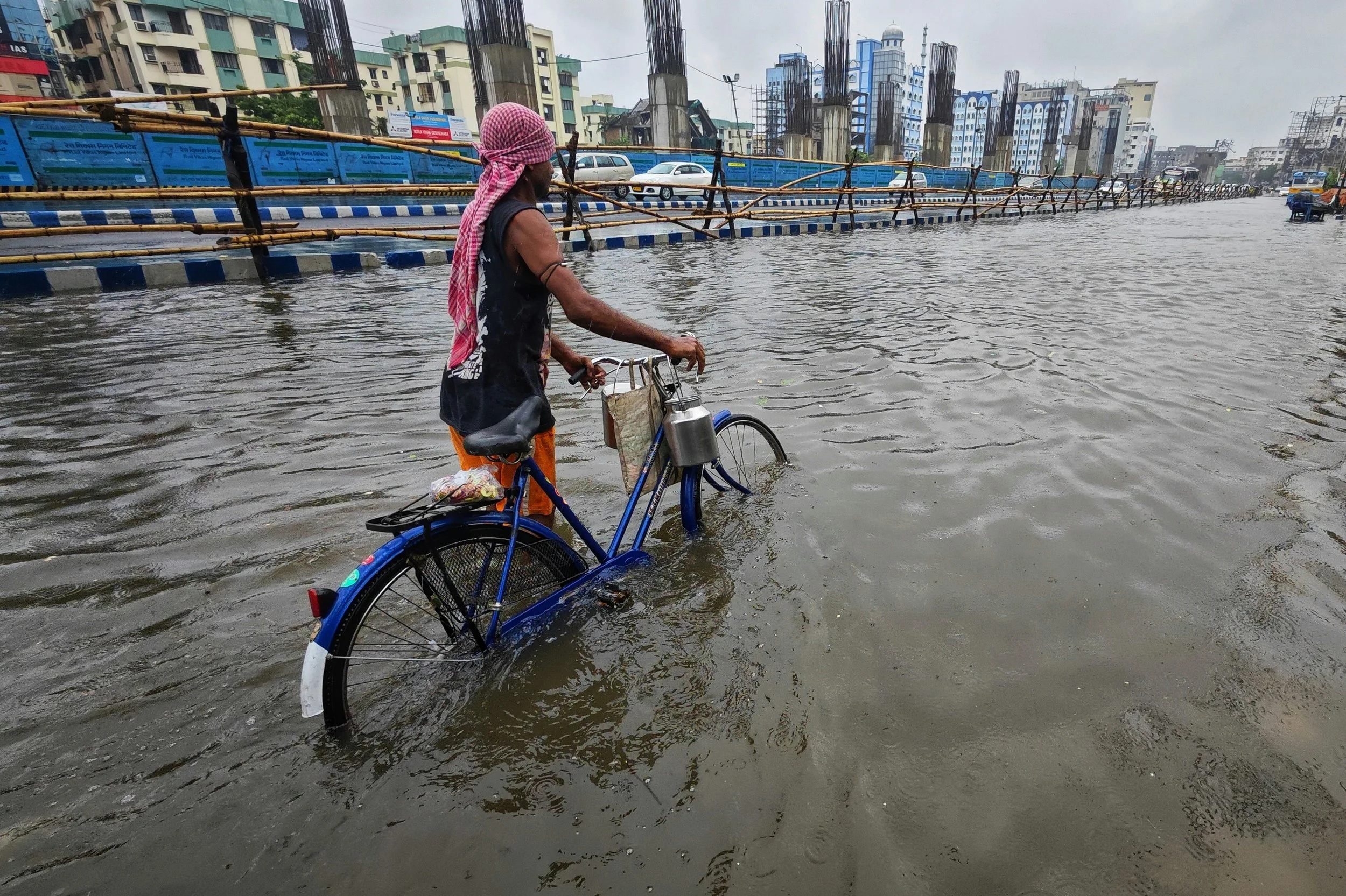Youth are building urban climate resilience. Here’s what we’ve learnt.
Climate change is not a distant threat—it's here. And it's hitting hardest in the places that have contributed the least to the problem. In cities like Lagos and Nairobi, people are living with the daily reality: heat, pollution, floods, and infrastructure that buckles under pressure it was never designed to handle.
In 2023, we launched the Children and Young People, Cities, and Climate (CCC) Action Labs with a simple idea: if cities are to become truly resilient, young people must be at the forefront, actively shaping the solutions as designers, leaders, and advocates.
Over the past year, we've learned many lessons about what youth leadership really takes, and how to nurture it effectively. Here's what young climate advocates really need to drive lasting change.
You can’t ride on passion alone
It’s easy to romanticize youth leadership, after all, young people are energetic, visionary, and deeply committed to their communities.
Young people have the vision and energy to tackle climate change. What they don't have is money for bus fare.
It sounds small, but passion doesn't pay for transport to community meetings, internet bundles to coordinate campaigns, or snacks to keep volunteers fueled and engaged. The reality of effective advocacy is addressing these practical, everyday barriers that stop great ideas from becoming real.
In Lagos, the Second Life Squad had lots of ideas they wanted to explore to address climate change in their community. But ideas stay ideas without resources. With just a small amount of monetary support from CCC, they were able to mobilize volunteers, organize events, and show up for their communities in visible, practical ways. They organized a cleanup drive involving over 200 volunteers, and ran a program educating more than 100 peers about reducing waste.
This pattern repeated in Nairobi. The NextGen Mobility team wanted to change attitudes toward electric transport, particularly among the city's boda-boda drivers. But reaching these drivers on a meaningful scale demanded time, trust, and money. The stipends provided by CCC allowed the team to physically meet drivers where they were, literally—on the road—and build a campaign grounded in everyday realities rather than abstract concepts.
The lesson? Stop asking young people to change the world on empty pockets. Fund the basics, and watch what happens.
Youth voices in decision-making spaces
Money gets you so far. But if you're not in the room where decisions happen, you're still on the outside.
For young people to drive impactful campaigns, they also need access to the rooms where decisions are made and relationships with the individuals making them.
CCC cracked this code by providing these critical connections. Through partnerships with C40 and local environmental offices, youth leaders suddenly had direct lines to the people making city-level climate decisions.
In Nairobi, a regional facilitator walked youth directly into meetings with city government environmental officers, cutting through the bureaucracy. These interactions were designed to equip young advocates with the practical knowledge needed to navigate local systems effectively. As a result, they garnered more support for the initiatives from the city, and were able to provide feedback on the city’s climate policies.
With direct access to decision-makers, youth campaigns become sharper, better-informed, and far more likely to achieve real change. As the CCC Action Labs evolved and expanded, maintaining this level of practical, institutional access remained just as critical as any toolkit or financial investment.
Plans are great. Reality is better.
Even with resources and access, climate action never goes according to script. Smart advocates know when to pivot, and they do it fast.
Nairobi's NextGen Mobility learned this halfway through their campaign. Originally, their advocacy strategy aimed to target the entire transport system, but they swiftly shifted to targeting boda-boda drivers only, which ultimately led to a more effective campaign that actually moved the needle.
Nobody wins alone
Climate challenges are too big for solo acts. The young advocates who understand this build coalitions, and get further because of it.
In Nairobi, NextGen Mobility could have tried to figure out air quality policy alone. Instead, they connected with Project Clean Air 254 and learned from people already in the fight. The result? They engaged over 300 boda-boda riders and city officials with real expertise, not just passion. Their participation in high-visibility events like the Urban Shift Forum further boosted their credibility, reach, and impact.
At its core, CCC demonstrated that young people want, and are already leading climate action. Whether it’s organizing community clean-ups in Lagos, shifting transportation paradigms in Nairobi, or influencing policy at the highest levels.
Young people are already leading climate action in Lagos and Nairobi. The question isn't whether they can do it—it's whether we're smart enough to get out of their way and give them what they need.
Ready to partner with us to help youth lead the way? Reach out to our team today!



